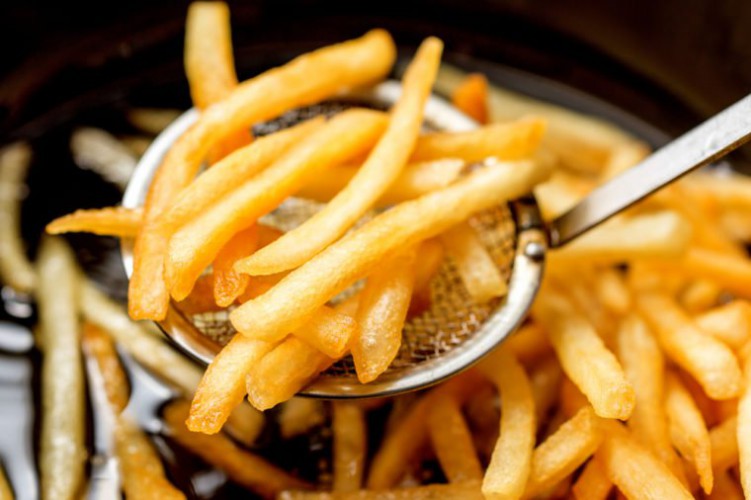-
Food 
DoughnutsDoughnuts should be renamed “trans fat nuts.” Those chocolate-sprinkled morning pastries taste delicious but can be chock-full of trans fatty acids, notorious “bad” fats that can trigger negative biological reactions that increase the risk of mood changes. A diet high in trans fats can increase risk of depression, according to WebMD. Here are some more everyday habits that up your risk for depression.SodaWho doesn’t love a refreshing sip of sweet bubbly? Sadly, the more sugar you ingest, the more inflamed your body becomes. What’s wrong with inflammation? A study published in Psychiatry, a journal of the American Medical Association, found that depression is linked with higher levels of inflammation in the brain. To satisfy your sweet tooth, eat a few ounces of dark chocolate instead, which has little to no sugar and is a superfood in its own right.French friesIt’s not the potato that’s the problem—it’s the salt. High-sodium diets cause bloating that, while not technically a medical problem, can put you in a lousy mood. To help combat a salty diet, drink lots of water. These are the things psychologists wish people knew about depression.CoffeeYou might want to rethink that afternoon pick-me-up. While there is no definitive link between caffeine and depression, this popular stimulant can make insomnia worse, and according to Mayo Clinic, lack of sleep—and anxiety surrounding insomnia—can increase the symptoms of depression. Try to limit yourself to one cup per day (and the earlier in the day you drink it, the better).AlcoholToo much alcohol wreaks havoc on your mood. According to the Royal College of Psychiatrists, alcohol can cause an imbalance in your brain chemistry, increasing the risk of depression. What’s more, overindulging can cause social problems, resulting in isolation that can lead to depression. Lastly, hangovers themselves can create days of low mood and anxiety. Try to stick with a glass or two of wine a night. These are the foods to eat—and not to eat—if you have anxiety.Processed foodsMicrowaveable meals are convenient, but according to the British Journal of Psychiatry, high consumption of processed foods is linked to an increased risk of depression. Instead, boil whole-wheat pasta and top if off with fresh tomato sauce and steamed frozen veggies. You’ll have a tasty dinner in 20 minutes flat. You could also try these 10 foods that fight depression.GlutenIf you have celiac disease, eating gluten, a protein that comes from wheat and grains such as barley, rye, and oat, can cause major mood changes, in addition to dangerous attacks on your small intestine. But according to Celiac.org, many people can have gluten intolerance, and for them, gluten may also hike the risk of depression. Not sure if gluten affects your mood? Try cutting it out for a week, and see if you notice any improvements. Next, check out these foods that are scientifically proven to boost your mood.